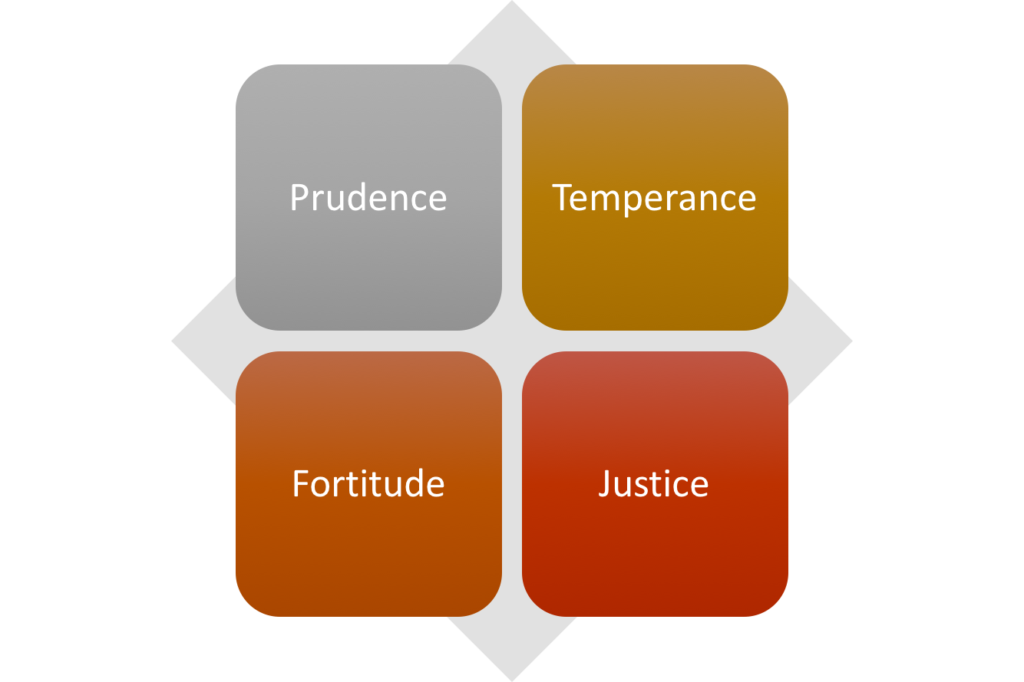Cultivating Virtue

[i4w_hidefrom tagid=’4966′]
If you like the content on this page, then you’ll love the video segment “Develop Virtue” from the Embrace Parenthood DVD Program! You can watch this video segment for one week and download relevant workbook pages for only $2.99.
[/i4w_hidefrom]
Are you ready for some “heart work”? That is what cultivating virtues is all about. Virtue training involves working on the inside of the person – the heart – more even than changing the outside behaviors. Cultivating virtues means connecting with your children at their “heart” level.
The “Heart Work” of Parenting for Virtue
A foundational belief of all Christians is that God inscribes his law upon each and every human heart. Within your heart lies the foundational desire for what is good and to avoid what is evil. It is also within your heart that you will make concrete judgments about your life. God connects with you in your heart. It is in your heart that you will come to know him and his plans for you.
If the heart is the place where God connects with you, then it is also the best place for you to connect with your children. Why? Because it is in the heart that you can partner with God in raising your children to do what is right. God counts on you to be “his hands” and “his heart” on earth. He connects with you in your child’s heart.
Virtue development is a form of authoritative parenting because it focuses on making changes at the “heart” level first and behavior second. The goal of both authoritative parenting and virtue development is to guide your child to personally commit to what is right and good. This personal commitment is made at your child’s heart level. Your child has to freely choose to make the heart change – you as a parent cannot force him or her to make the change.
This is why virtue development is such a different form of parenting. It doesn’t rely on manipulation or force to change a child’s behavior. When parents try to change children’s behavior through manipulation or force they often find themselves painted into the corner of “if you do what I say I will give you what you want.” This type of parenting develops the child’s selfish tendencies instead of his or her commitment to do what is right. Changing the outside behavior of your child does not ensure that the heart of your child has followed. You know you can force your child to change his or her outside behavior, but you cannot force her to change her heart. This is why parenting through the virtues is harder to accomplish.
A change of heart lasts much longer than a forced behavior change. Internal changes are more significant and meaningful because your child has set his or her heart on it. He or she becomes strengthened by the change – more committed to the change. Once a change of heart has taken place, it is hard to undo it.
How to Parent for Virtue
So what do you have to do to cultivate the virtues in your child’s heart? Here is a list of ideas.
- Connect deeply with God in your own heart. Pray more often. Receive the sacraments with frequency and devotion. Read Scripture and meditate on what it says. Commit to daily acts of sacrifice.
- Role model virtuous living. Allow your child to see you choose what is right and avoid what is evil – especially when it is hard for you to do. Most of what children learn is ‘caught’ rather than ‘taught’. Get started with the “How Virtuous Are You” worksheet, which will help you think through your own character and identify which virtues you may need to strengthen.
- Pay attention – observe your children. Find out what type of personality God has given them. Are they strong willed or compliant? Learn what motivates your children – what their interests and talents are. By understanding the basic temperament and God-given gifts of each child, you will know how to balance the demands you place on your child with your love and affection.
- Call attention to the virtuous actions of your children. This means that when you ‘catch your children doing what is right, give them immediate feedback mentioning the virtue that was demonstrated. (Ex. Jayne, you came the first time I asked you to come set the table. Thanks for being so obedient. I appreciate it! Conner, thanks for finishing your homework. I could see it took lots of perseverance to complete that assignment. Way to go!)
- Listen to what your child has to say. Try to understand what motivates their thinking and their actions. If they begin to tell you about situations that are wrong, try not to put them on the spot. Instead make mental notes about how you will guide them to what is right and good at another time. Click here to download a resource on “I statements” to help you retain respect for your children while you discuss their behavior.
- Be patient – persevere. Remember that cultivating virtues in your children (as well as yourself) is long and exacting work. It is a “two steps forward and one step backwards” journey. Find contentment and joy in the slow and steady progress that is made.
[i4w_hidefrom tagid=’4966′]
If you like the content on this page, then you’ll love the video segment “Develop Virtue” from the Embrace Parenthood DVD Program! You can watch this video segment for one week and download relevant workbook pages for only $2.99.
[/i4w_hidefrom]
